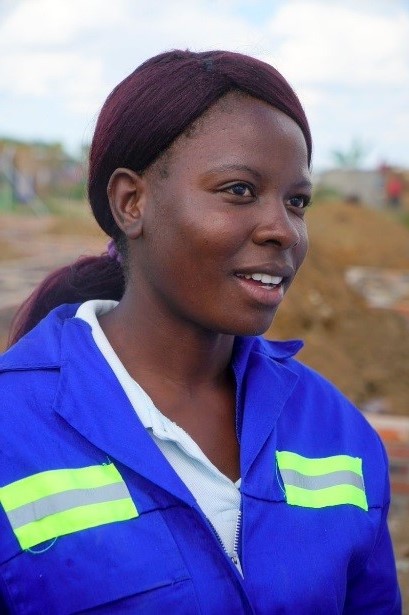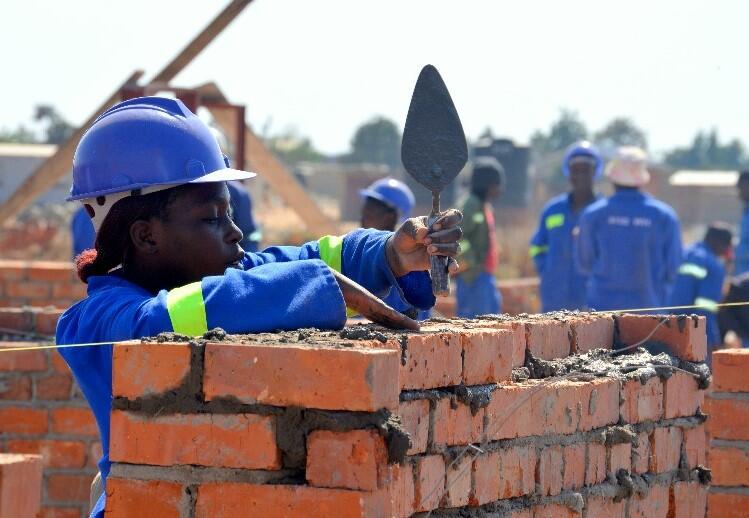Kudakwashe Josaka (22) never dreamt she could earn enough money for herself.
“When I failed to complete my Ordinary Levels, I thought that was the end of the road for me because in this country the experience is that you don’t go very far without an education,” says Kudakwashe.
But today Kudakwashe is a trained brick layer and is proud to say she earns some decent money to take care of her 3-year-old daughter.
“I feel very proud of this work because very few women work in this area of building. This experience has taught me that not even the lack of education can stop someone from achieving anything in life and that there is no job for a woman or for a man; we are all equal. We can both do the same work as long we have the skills,” she explains.
Kudakwashe is one of the women who are benefiting from the Hopley Infrastructure Development Project, where UNFPA has partnered the International Labour Organisation, City of Harare Health Department and a private company LaFarge Cement, in the construction of a youth centre and clinic as part of the Joint Program on Adolescent and Youth Development (JPAYD).
The programme seeks to support young people to lead healthy, productive lives through reducing unwanted pregnancies, early marriages, incidences of HIV, school dropouts and creating employment opportunities.

Hopley is a peri-urban district located on the outskirts of Harare with a population of approximately, 200 000 people, with about 65 000 being aged between 10-24years, who will have access to the clinic for SRHR services and the youth centre for youth development programs. Young people in this community have limited access to work opportunities often relying on informal work characterized by decent work deficits and working poverty. Child marriages and teenage pregnancies are common; at 18% and 21% respectively. At least 70% of girls are mothers by age 24 years.
Vulnerable young people, with a focus on young women, were identified for a skills training programme in partnership with St Peters Kubatana Vocational training centre. At least 50 young women were trained in brick and block laying, carpentry and joinery, plumbing and electrical and are now contributing to the construction of the polyclinic and multi-purpose youth centre in Hopley.
An additional 50 received training in cobblestone technology – a low cost employment intensive approach to the provision of access roads. A demonstration road was also constructed for feasibility assessments by the City of Harare and possible roll out. It is anticipated that beyond the training, the 100 young people will become self-employed providing these services to their community and surrounding areas.
UNFPA Country Representative Dr Esther Muia said the programme is helping to empower young people, especially girls with life long skills. She said the programme has helped promote gender equality through the participation of young women in traditionally male dominated areas of work as 56 per cent of apprentices are female.
By Bertha Shoko


